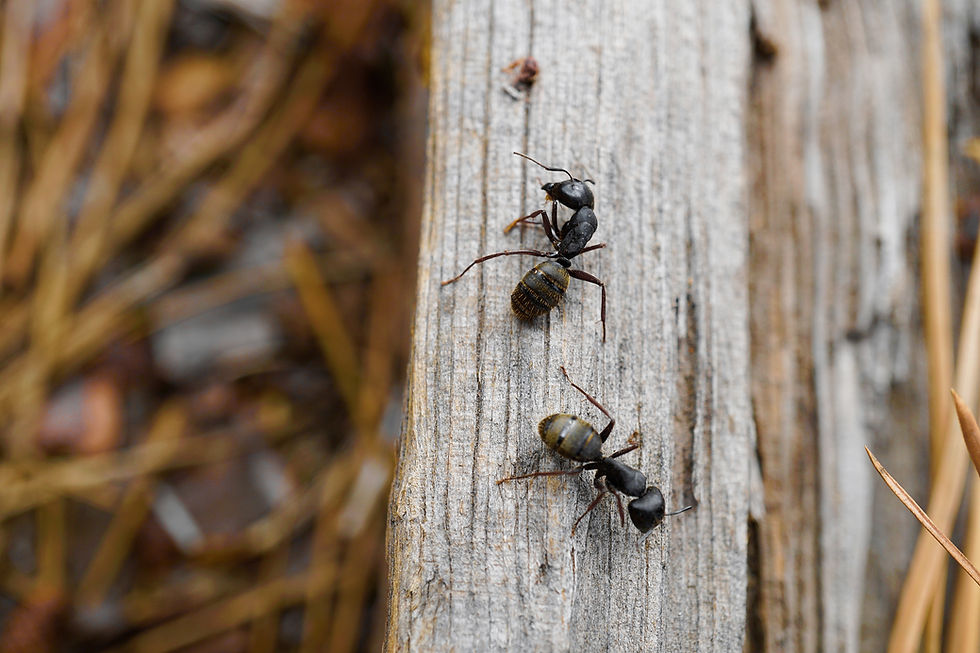The Sweet Symphony of Honey Bees: Why These Tiny Pollinators MatterImagine a world without apples, almonds, or avocados. Sounds grim, doesn’t it? Honey bees are the unsung heroes of our food system,
- VecPest

- Dec 31, 2024
- 3 min read

The Sweet Symphony of Honey Bees: Why These Tiny Pollinators Matter
Imagine a world without apples, almonds, or avocados. Sounds grim, doesn’t it? Honey bees are the unsung heroes of our food system, tirelessly working behind the scenes to keep our plates colorful and nutritious. While their buzzing might make some people nervous, these little pollinators are worth their weight in gold—both ecologically and economically.
In this blog, we’ll dive into the incredible lives of honey bees, uncover their essential role in our environment, and explore how we can all play a part in protecting them.
1. Honey Bees: Nature’s Master Pollinators
Hook: Did you know one-third of the food you eat is made possible by honey bees?
Honey bees are unrivaled pollinators, transferring pollen from flower to flower as they collect nectar. This process is critical for the reproduction of many plants, including over 90% of flowering crops. Without them, fruits, nuts, and vegetables would dwindle, drastically impacting global food supplies.
📊 Stat Spotlight: According to the USDA, honey bees contribute over $15 billion annually to the value of U.S. agriculture.
Practical Tip: Plant bee-friendly flowers like lavender, sunflowers, and clover to support local pollinators.
2. The Ecosystem Engineers: Supporting Biodiversity
Hook: Honey bees are more than food-makers—they’re biodiversity builders.
By pollinating wild plants, honey bees help maintain healthy ecosystems. These plants provide food and shelter for countless species, creating a ripple effect that sustains wildlife. Their work ensures that ecosystems remain diverse and resilient.
🌱 Expert Quote: “Protecting honey bees means protecting biodiversity,” says Dr. Marla Spivak, a renowned entomologist and bee researcher.
Practical Tip: Avoid using pesticides in your garden, as they can harm honey bees and other pollinators.
3. Inside the Hive: A Marvel of Nature
Hook: Ever wondered what life inside a honey bee colony looks like? It’s a bustling metropolis with a queen at the helm.
A single colony can house up to 60,000 bees, each with a specific role. Worker bees forage for food, drones mate with the queen, and the queen lays eggs—up to 2,000 per day during peak season! Their collective effort ensures the survival of the hive and supports their pollination missions.
🧐 Fun Fact: Honey bees communicate through a “waggle dance” to share the location of food sources.
Practical Tip: Support local beekeepers by buying raw, local honey—it keeps small-scale hives thriving.
4. The Sweet Reward: Why Honey is Liquid Gold
Hook: There’s a reason honey has been cherished for thousands of years—it’s a gift from bees that benefits us all.
Honey isn’t just a delicious natural sweetener; it’s also packed with antioxidants and antimicrobial properties. Plus, honey production provides a vital livelihood for beekeepers around the world. Every drop is a testament to the hard work of honey bees.
📢 Quote: “When you buy honey, you’re supporting the environmental stewards of the world,” says Chef Dan Barber, a sustainable food advocate.
Practical Tip: Look for honey labeled “raw” or “organic” to ensure it’s free from additives and processed sugars.
5. The Threats They Face: Why Honey Bees Need Our Help
Hook: Honey bees are in danger, and their survival is closely tied to ours.
Pesticides, habitat loss, climate change, and diseases like colony collapse disorder (CCD) are decimating honey bee populations. These threats are not only a danger to bees but to the ecosystems and food systems that depend on them.
📊 Stat Spotlight: According to the EPA, the U.S. lost 45.5% of managed honey bee colonies in 2020-2021 alone.
Practical Tip: Build a bee hotel or leave patches of wildflowers in your yard to provide shelter and food.
6. How We Can Protect the Buzz
Hook: Saving honey bees isn’t just a job for scientists—it’s something we can all contribute to.
From planting pollinator-friendly gardens to reducing pesticide use and supporting organic farming, small actions can have a big impact. Educating others about the importance of honey bees is another crucial step in their conservation.
🌎 Expert Insight: “Every flower planted is a step towards a more bee-friendly world,” says Sarah Red-Laird, founder of Bee Girl Organization.
Practical Tip: Participate in community initiatives, like “No Mow May,” to create bee-friendly habitats in your neighborhood.
Wrapping Up: A Buzz Worth Protecting
Honey bees are more than just pollinators; they’re architects of ecosystems, providers of food, and symbols of nature’s resilience. By understanding their role and taking steps to protect them, we’re ensuring a healthier, more sustainable future for everyone.
So, the next time you see a honey bee flitting from flower to flower, pause and appreciate the magic in motion. They may be small, but their impact is monumental—and it’s up to us to keep the buzz alive!





Comments